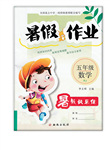题目内容
Once upon a time, there was a large mountainside, where an eagle’s nest rested. The eagle’s nest contained four 36 eagle eggs. One day an earthquake rocked (使震动) the mountain 37 one of the eggs to roll down the mountain, 38 a chicken farm, which was in the valley below. The chickens knew that they must 39 and care for the eagle’s egg, so an old hen 40 to hatch (孵) and raise the large egg.
One day, the egg hatched and a beautiful eagle was born. 41 , however, the eagle was raised to be a(n) 42 . Soon, the eagle believed he was 43 more than a chicken. The eagle loved his home and family, 44 his spirit cried out for more. While playing a game on the farm one day, the eagle looked to the skies above and 45 a group of eagles soaring (高飞) in the skies. “Oh,” the eagle 46 , “I wish I could soar like those birds.” The chickens shouted with 47 , “You cannot soar with those birds. You are a chicken and chickens do not soar.”
The eagle 48 staring at his real family up above, 49 that he could be with them. Each time the eagle would let his 50 be known, he was told it couldn’t be done. That is 51 the eagle learned to believe. Slowly, the eagle 52 dreaming and continued to live his life like a chicken. 53 , after a long life as a chicken, the eagle 54 .
You become what you believe you are; so if you ever dream to become an eagle, 55 your dreams, not the words of a chicken.
【小题1】A
【小题2】C
【小题3】D
【小题4】C
【小题5】A
【小题6】C
【小题7】A
【小题8】D
【小题9】B
【小题10】A
【小题11】A
【小题12】C
【小题13】C
【小题14】D
【小题15】C
【小题16】A
【小题17】D
【小题18】B
【小题19】C
【小题20】B
解析试题分析:
【小题1】考查上下文的衔接:从这段的最后一句话的raise the large egg.说明是选A。
【小题2】考查现在分词做结果状语:一天,发生了一场地震,在地震的剧烈晃动中,使得一只蛋滚到了山下,选C
【小题3】考查介词:表示:滚到了山谷中的一个养鸡场里。选D
【小题4】考查动词,和care for并列的应该是protect保护,那里的鸡觉得他们必须保护照顾这只鹰蛋,选 C
【小题5】考查动词:offer to do“主动提出做”于是一直老母鸡自告奋勇地担负起了养育这只大蛋的责任。选A
【小题6】考查副词:从however,看出是表示和前面的句子的转折关系,然而,悲哀的是,这只鹰是被当作一直鸡抚养长大的。选C
【小题7】考查上下文暗示,从上题的解析看出,选A
【小题8】考查词组nothing more than“只是”句意是:这只鹰就相信了它只不过是一只鸡而已。选D
【小题9】考查连词,从上下文的逻辑关系可知,这里表示转折。它热爱自己的家园和亲人,不过,它的本性还是一点一点地显现出。选B
【小题10】考查动词辨析:A. noticed注意到,B. recognized识别C. respected尊重, D. watched观看,句意是:它注意到了一群高傲的鹰正在天空翱翔。选A
【小题11】考查动词,从这只鹰说的话看出是叫出来的。选A
【小题12】考查名词,从小鸡对它说的话看出带有嘲笑的成分。选C
【小题13】考查动词,因为是继续重复前面的动作,选C
【小题14】考查动词辨析: A. promising相信,B. proving证明,C. believing相信, D. dreaming梦想,从句意看:这只鹰还是目不转睛的看着,看着高空中自己真正的家人,梦想着自己也能像他们一样。选D。下文52个空也有暗示。
【小题15】考查上下文衔接,上文说它梦想着自己也能像他们一样,这里应该选C
【小题16】考查表语从句:what在从表语从句中做believe的宾语。这只鹰就相信了它们的话。选A
【小题17】考查动词,前面说:这只鹰就相信了它们的话。所以是不再梦想了。选D
【小题18】考查副词:从后面的句子after a long life as a chicken,可知是选B,表示“最后”
【小题19】考查动词短语:A. gave up放弃,B. broke down 崩溃,分解,C. passed away死了,去世,D. died out 灭绝,C项最符合句意:。最终,这只鹰死了,终身都只是一只鸡。
【小题20】考查动词搭配:follow one’s dream“追逐梦想”,选B
考点; 考查故事类短文
点评:这类完型先描写一个故事,从中悟出一些道理,象这篇短文先描写了一只鹰变成小鸡的过程,最后点题:我们不要放弃自己的梦想。考生要深入理解整个文章,掌握文章的主旨,同时注意上下文串联以及词义辨析。

 暑假作业暑假快乐练西安出版社系列答案
暑假作业暑假快乐练西安出版社系列答案